For people living with HIV/AIDS and TB, Riverside Warehouse, Gumbo is more than a building; it’s a source of health supplies
With Riverside Warehouse, we ensure supply of HIV/AIDS and TB Drugs
November 28, 2023
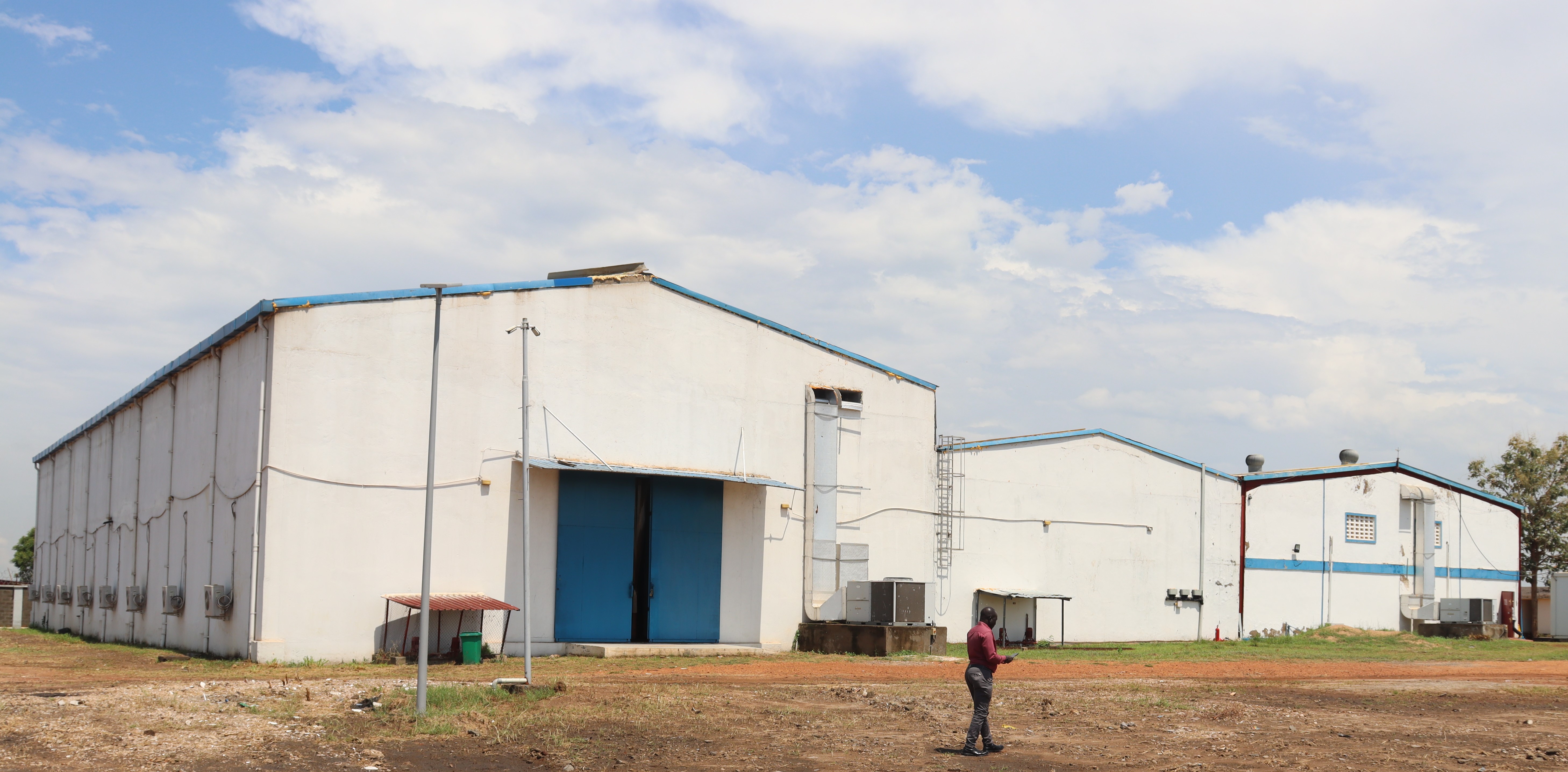
Riverside Warehouse, Gumbo
Five kilometers east of Juba on Bor Road is a big, perimeter wall, housing the Riverside Warehouse Gumbo and other health installations. These include an oxygen plant that produces 500 litres of medical oxygen daily and an incinerator that handles safe disposal of hazardous, medical and pharmaceutical waste from the warehouse an nearby hospitals and health facilities.
To the estimated 160,000 people living with HIV/AIDS and TB in South Sudan, this is more than a building. It is a storage for vital medical supplies used to manage the two diseases. The availability of these medical supplies encourages HIV/AIDS and TB testing and ensures that those who test positive are enrolled for treatment; and this has advanced national efforts to end HIV/AIDS, TB and COVID-19.
The warehouse also housed essential COVID-19 supplies such as test kits and personnel protective equipment which strengthened the country’s response and recovery from the pandemic. Over 200 hospitals and health facilities across the country get HIV/AIDS and TB drugs, laboratory reagents, and COVID-19 testing kits and PPEs from this stockroom.
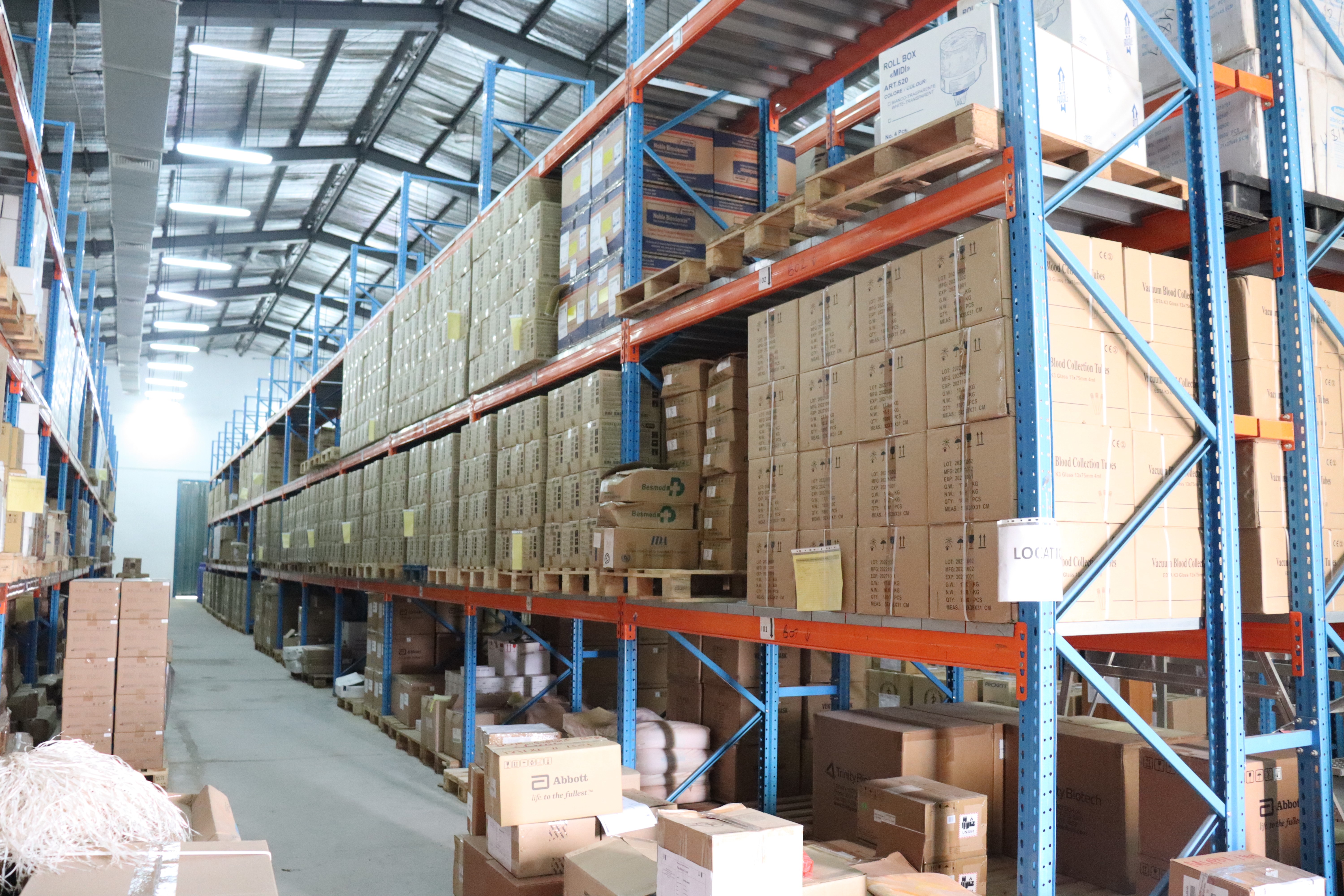
Inside Riverside Warehouse, Gumbo
UNDP in support of the Government and people of South Sudan through the Ministry of Health, with funding from the Global Fund, procured and distributed rapid diagnostic kits, GeneXpert machines and reagents which supported 519,301 COVID-19 tests in the country.
Similarly, through our support, 4,103,214 HIV tests were conducted between 2006 and 2022, and 113,465 people received treatment between 2006 and June 2023. Since 2017, UNDP runs the warehouse in conjunction with the Ministry of Health as part of our support to strengthening procurement and supply chain management.
Managing supplies and refills
The warehouse uses mSupply – a pharmaceutical management system to issue and release supplies, manage incoming supplies and orders. The system issues stock warnings or alerts for cold storage temperature breaches and expiry dates, and allows the release of goods on first expired, first out (FEFO) basis which minimizes wastage. Another feature of the warehouse is a cold chain room which captures real-time temperatures in cold storage facilities. An alert is sent as soon as a breach is detected, specifying the batch location.
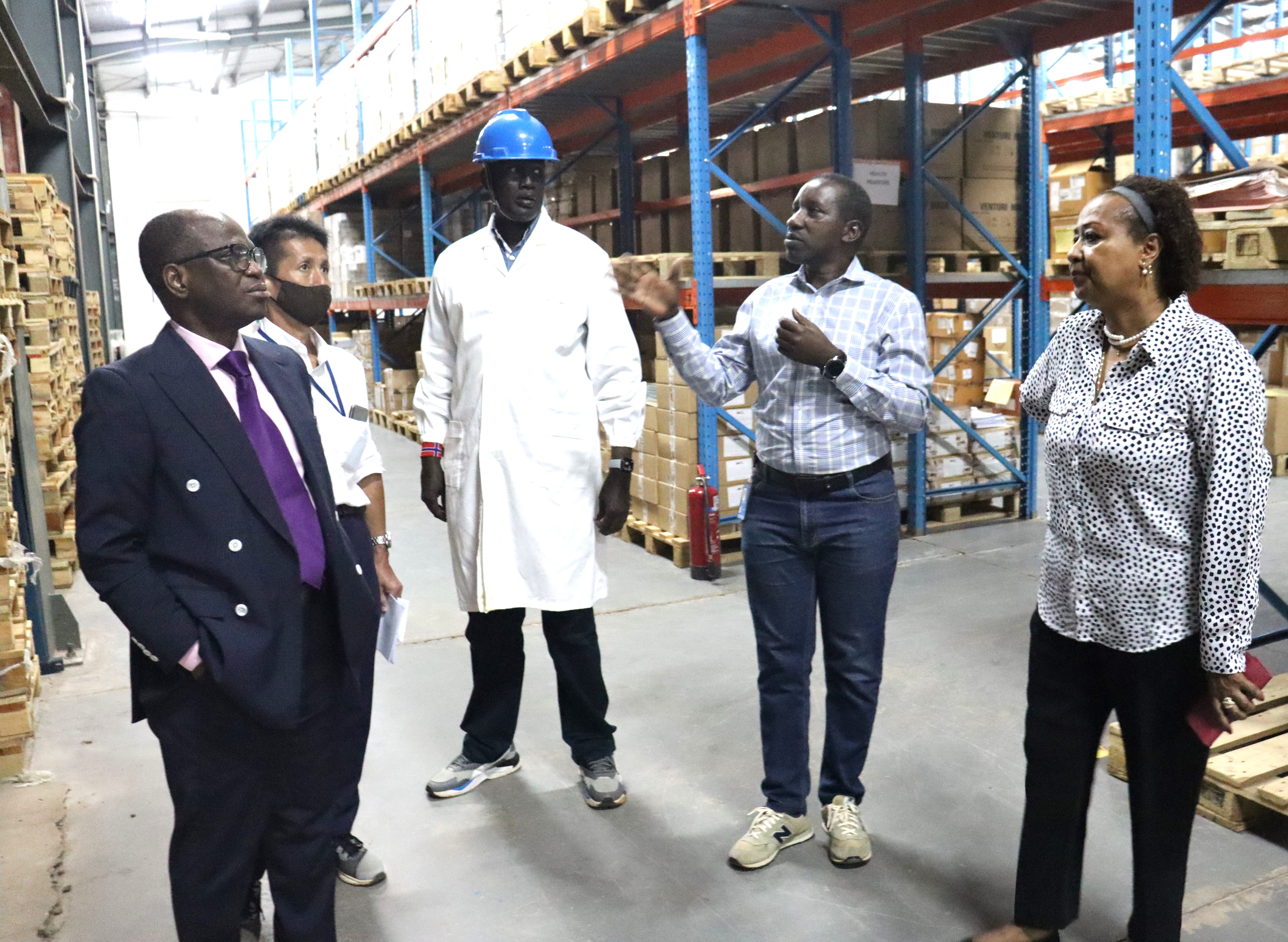
The UNDP Deputy Resident Representative – Programmes, Mr. Titus Osundina (L) and the UNDP Deputy Resident Representative – Operations, Mrs. Debab Asrat Ynessu (R) with UNDP staff on a recent visit to Riverside Warehouse, Gumbo.
Former interns recall, share transformational experiences
Owing to the professionalism and success of the warehouse operations, the storeroom is increasingly being sought by medical and pharmacy graduates for internship before they are licensed to operate by the South Sudan General Medical Council. In the past three years, a total of 30 students have had their internship at the warehouse.
Nguech Alit Nguech – Founder and Proprietor, Prime Health Pharmacy and Warehouse, Juba
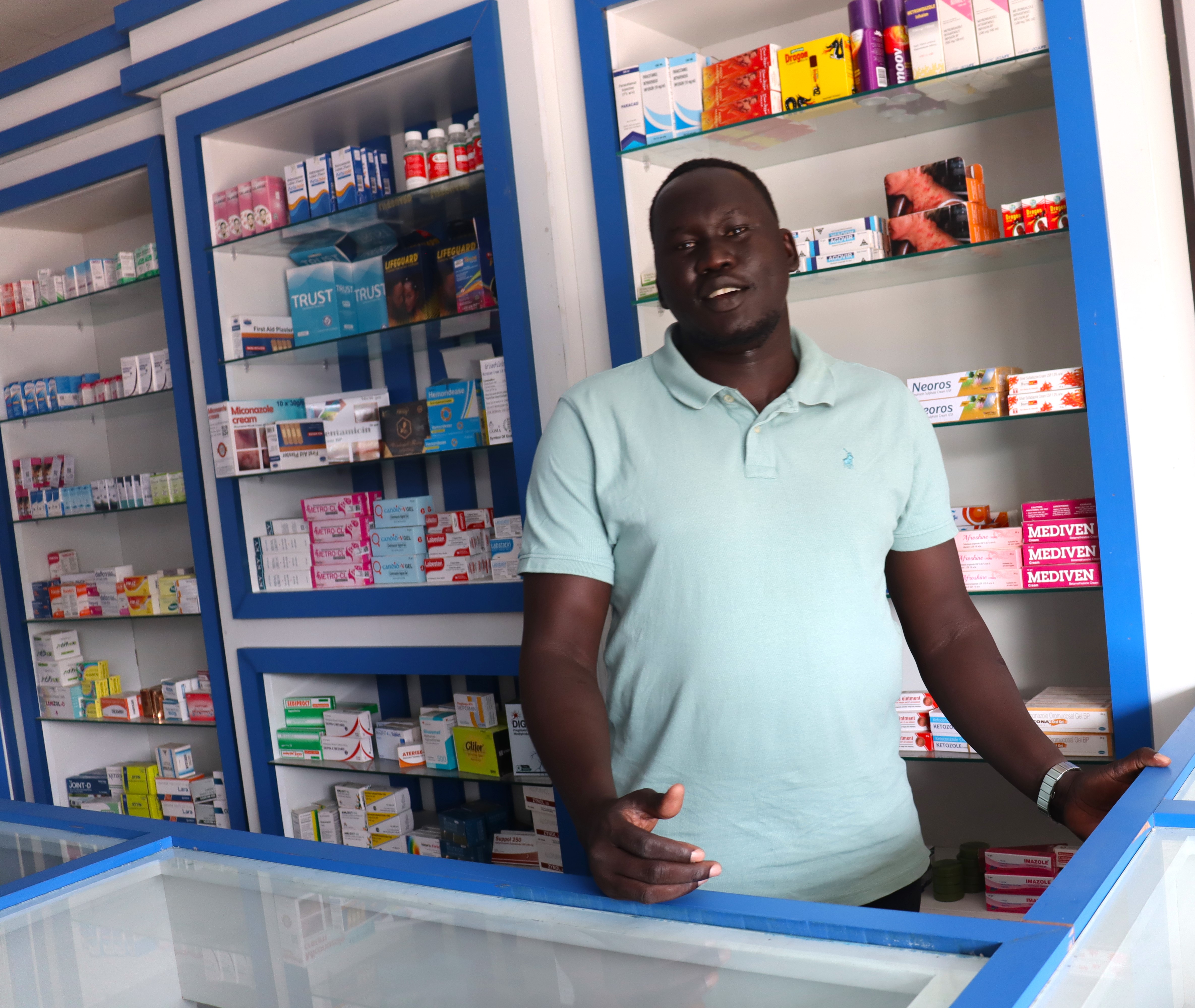
Nguech Alit Nguech inside Prime Health Pharmacy, Juba
I did my internship at Riverside Warehouse Gumbo between September and October 2019 after graduating with a Bachelor of Pharmacy from Jimma University, Ethiopia. The internship exposed me to South Sudan’s supply chain and warehouse management context, inventory control and managing expiry of stock as well as online stock control systems like using mSupply that UNDP uses. I was also exposed to safe disposal practices for medical and pharmaceutical waste. Being at the centre of medical supplies got me connected to so many people in almost all the hospitals in South Sudan.
The most stressful part was having so many emails from the health facilities across the country requesting for drugs. I had to prioritize and work with colleagues to identify the drugs, manage the distribution and follow up to ensure that the drugs reach the intended facilities.
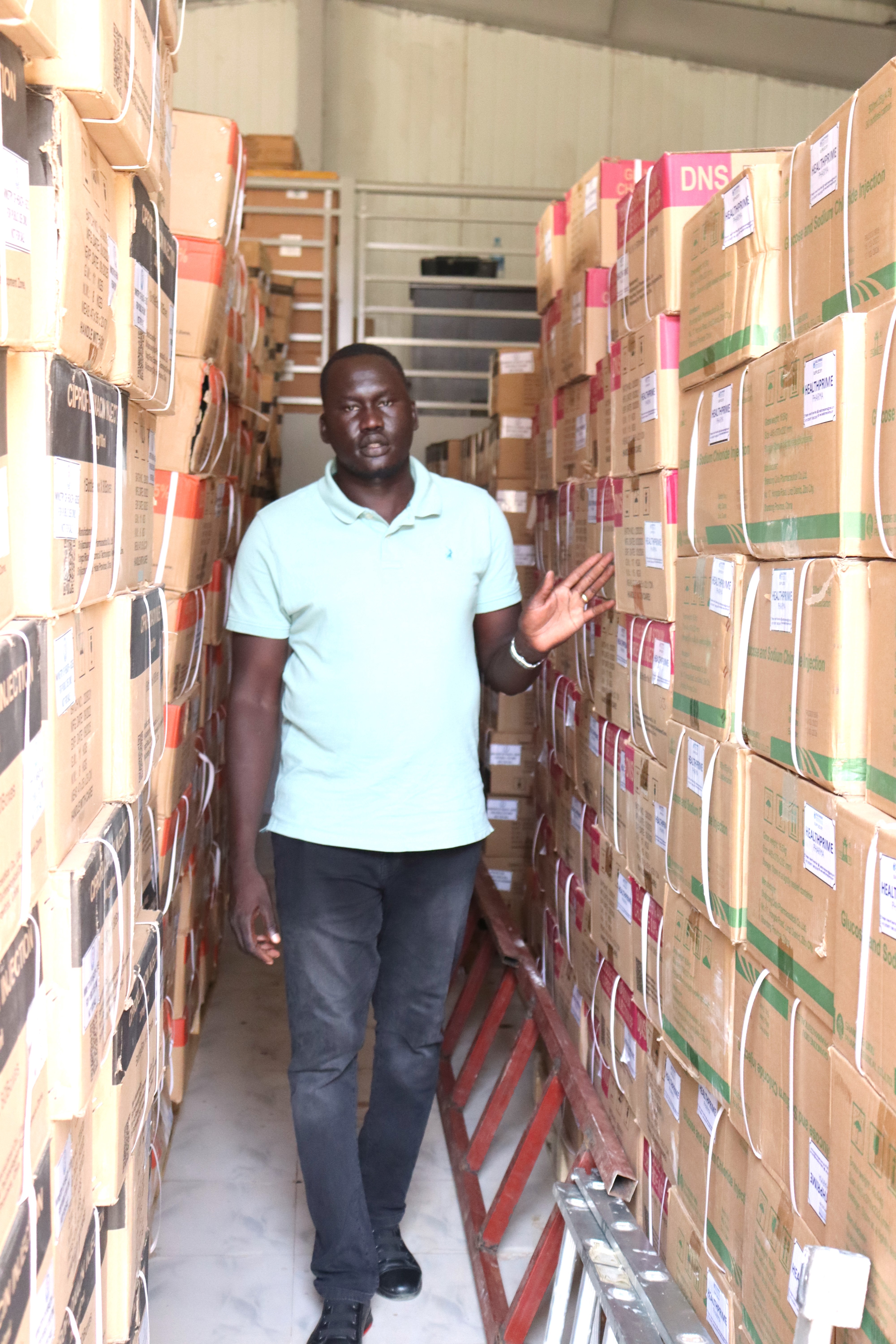
Nguech Alit Nguech inside Prime Health Warehouse, Juba
Warehouse management has a lot of challenges. You need to love your job to be able to move around the warehouse to determine the stock levels, see which drug is expiring and what is going wrong. If you don’t do that, so much stock will go to waste and that will be costly to the organization and risky to the people that depend on the drugs.
Immediately after the internship, I was employed by Samaritan Purse, an international organization, to improve supply chain in Maban County Hospital (Bunj Hospital) in Greater Upper Nile State. I resigned after one year to join the Ministry of Health in Juba and later started Prime Health Pharmacy and Warehouse in Juba specializing in providing hard-to-find medicines to clinics, pharmacies and some NGOs. I get such medicines from countries like Turkey and India. My experience at the warehouse influenced this decision. My internship experience was really fulfilling because providing drugs and test kits directly touches people’s lives.
Ms. Dalia James Wani Loro – Manager, Planet Health Pharmacy
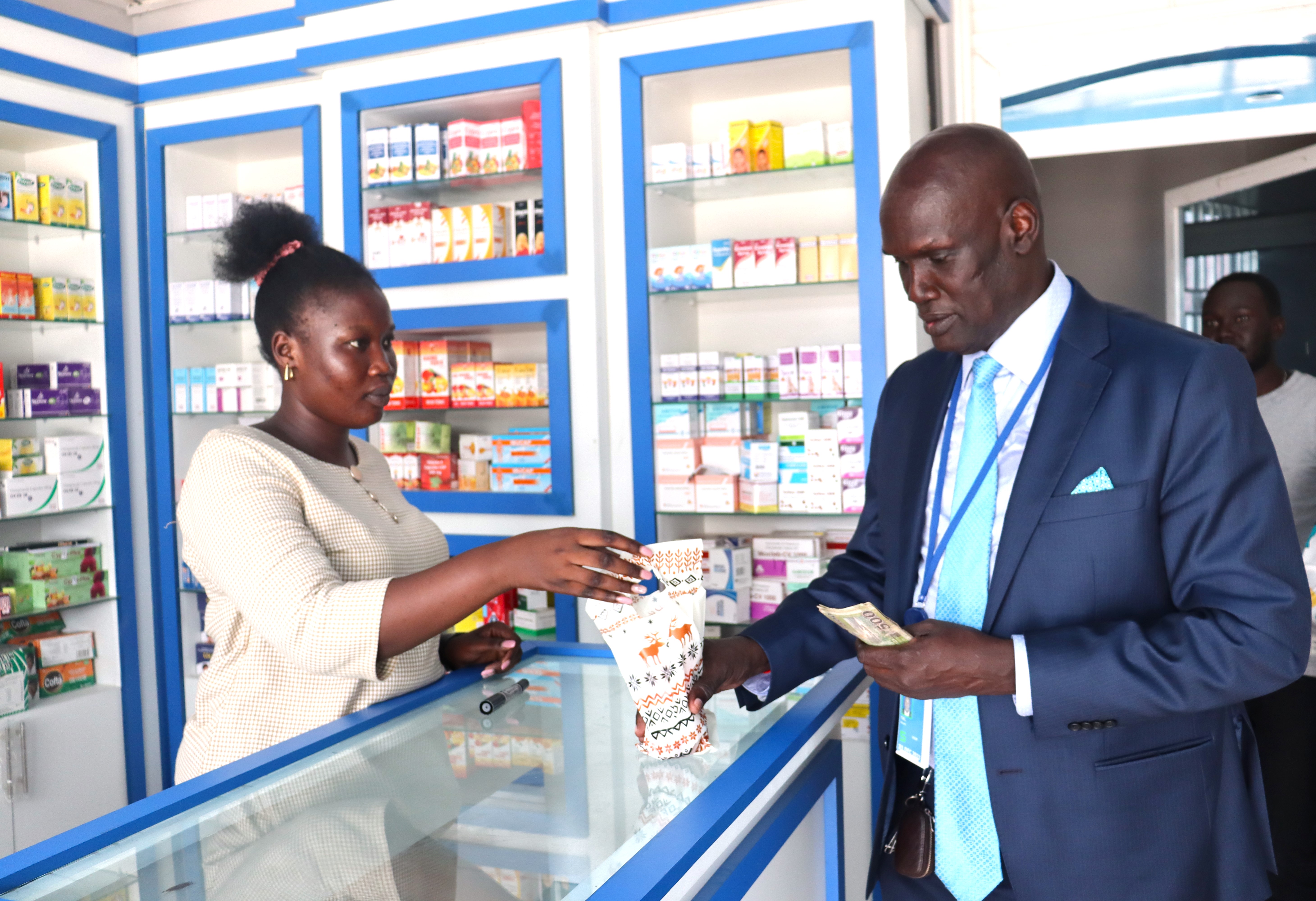
Ms. Dalia James Wani Loro , the Manager and Founder, Planet Health Pharmacy, Juba serving a client
I graduated in June 2019, from Rajiv Ghandi University for Health Sciences in India and came to Juba in March 2020. The process here is that when you graduate, you report to the Ministry of Health who enroll you in a six-month training course to expose you to different fields. The last segment of that training for me was the internship at Riverside Warehouse Gumbo for one month. It was headed by Dr. Santino Adibo at the time.
I now work in the supply department of the state ministry of health, and I also started a retail pharmacy called Planet Health Pharmacy. The pharmacy is an opportunity for me to provide my community with the supplies that they need. I can provide them in the private sector in an affordable way.
There are a lot of gaps in South Sudan’s public sector regarding supply chain. The citizens cannot get the services they need and even we professionals cannot provide them because we lack many skills.
The training gave me a direction for my career, and I hope one day, I will be able to change the supply chain processes and be able to provide services. Through supply chain, health facilities are equipped with essential medicines which helps people to get the services that they need. So, through the supply chain, we save lives. People will not just die because of preventable and curable diseases.
My internship was very helpful – especially knowing Dr. Santino Adibo who was heading the warehouse at the time was life-changing. He had a lot of passion for the profession, and he made us appreciate its importance in the country. In fact, that influenced me to shift my career to that direction, and I am currently doing my master’s in supply chain management.

 Locations
Locations